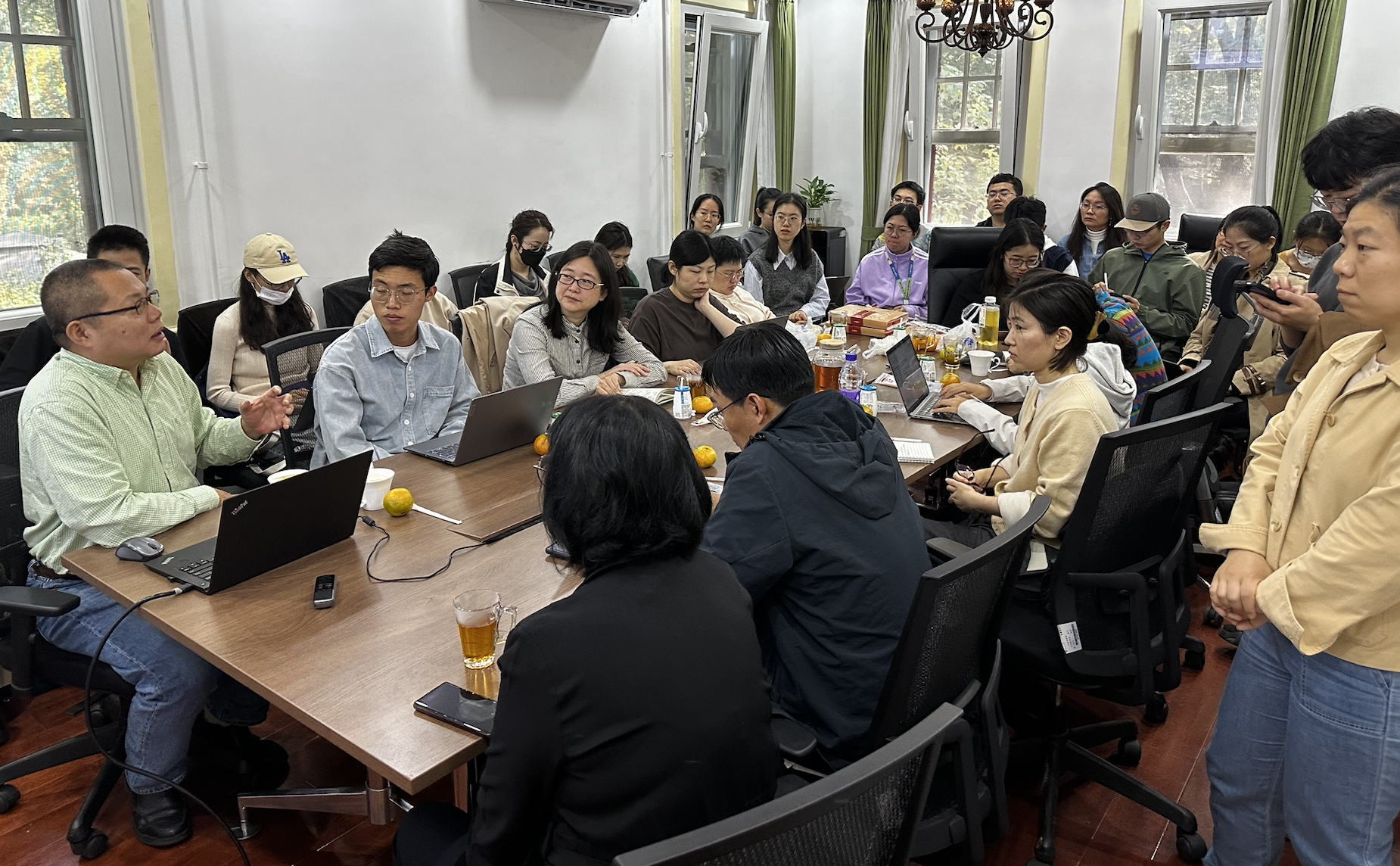
The Institute of Area Studies, Peking University (PKUIAS), hosted the fifth session in its series “Building Autonomous Knowledge Systems and New Perspectives in Area Studies” on November 1, 2023. It was led by Prof. Guan Kai, dean of the School of Ethnology and Sociology at Minzu University of China, and moderated by Prof. Zan Tao, deputy director of PKUIAS and professor in the History Department of PKU.
Prof. Guan Kai began the lecture by discussing the existing literature on colonial history and noted the limitations in the current study of colonialism in the Chinese academic community. He observed that colonialism seems like a “basket,” bounded by the theory of imperialism. The existing critique of colonialism mainly focuses on three aspects: critique from a market and economic perspective, focusing on the colonizers’ looting of resources and market domination; a public governance perspective, analyzing different methods of colonial control; and a racism perspective, studying the colonizers’ racial views and their constructed legitimacy of rule.
Prof. Guan Kai argued that these critiques of colonialism are insufficient to fully understand its inner meaning and that there has been no large-scale paradigm shift. He emphasized the need for new perspectives to re-examine the history of colonialism. Further, he pointed out that examining colonialism should not only consider the colonizers’ economic interests but should also analyze whether there is an intrinsic concern for world order. He listed four models of colonialism based on different internal concepts, using the UK, France, Russia, and Japan as examples.
British and French colonialism, characterized by a concern for world order, involved indirect rule in the UK, fostering local elites, and creating a new social order through law in colonized societies. This approach is related to the concept of inherent order and justice in natural law. French colonialism used Catholic universalism, represented by French culture, to assimilate “pagans,” with a strong desire to transform society, build schools, and spread language. Both countries showed a concern for establishing a universal world order during colonization.
In contrast, Russian and Japanese colonialism lacked concern for world order. Russian colonialism maintained strong agrarian social features and used extensive land ownership as a means of colonization. Japanese colonialism, driven by a deep sense of crisis, needed to plunder nearby natural resources to compensate for its resource disadvantages. Japanese colonization was not based on commerce but on collective village resettlement, even retaining original village names. Although Japan emphasized expansion, it did not focus on world order but only on establishing a separate regime. Japan’s sense of order was born out of confrontation, with a crisis feeling stimulated by the historical practice of colonialism, lacking the universalist world order view of Europe.
The re-examination of colonialism’s history was also accompanied by a reflection on the critique of Western colonial history. Prof. Guan Kai pointed out that, from a sociology of knowledge perspective, Western critical knowledge of colonialism forms a kind of global pressure, similar to the relationship between colonial suzerain and colony. We need to break through the limitations of Western critiques and reflect on colonialism at a higher, more universal level of knowledge. He returned to Marcel Mauss’s theory of gift exchange, attempting to find a new approach different from colonialism. Even during colonization, there were gift exchange interactions between colonizers and the colonized. Human society can replace the ephemeral logic of colonialism with gift exchange and mobility, putting colonialism back into its own lattice.
Finally, Prof. Guan Kai incorporated China’s current Belt and Road initiative into the discussion, proposing its unique sociology of knowledge implications based on historical comparison. He believed that the historical practice of the Silk Road contains deep traditional Chinese genes and a strong willingness to help other countries. We need to further explore the significant differences between this initiative and colonialism and establish a new intellectual discourse.
In the discussion session, Prof. Gong Haoqun, dean of the Department of Anthropology and Sociology at Xiamen University, and Associate Professor Wang Juan from the Department of Sociology at Peking University, discussed with Prof. Guan Kai on the seminar’s content, focusing on other countries’ views on the Belt and Road initiative, understanding and defining colonialism, among other issues. Prof. Zan Tao summarized the seminar, noting that the values mentioned by Prof. Guan Kai can be summarized as benefiting the world when thriving and focusing on oneself when in need. Prof. Guan Kai actually sought to establish a path for universal expression, particularly different from Western experience, using China as a method. His approach of engaging in dialogue with history and reality is sincere and valuable. Other students and faculty members also had in-depth discussions with Prof. Guan Kai on related colonial history issues.


